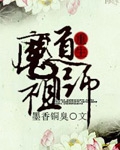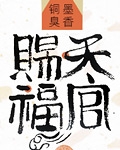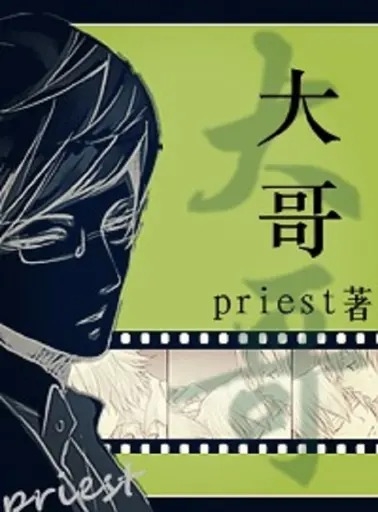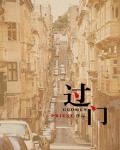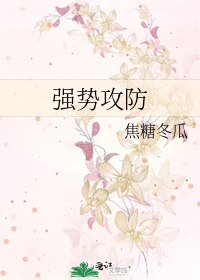Chapter 37 Drumming
Huangtu's hegemony has gone through several changes, and his name has been recorded in history.
Throughout history, emperors of different dynasties have been different. Some came to govern the country and bring peace to the people, some came to bring disaster to the country and the people, some came to practice Taoism, and some came to stir up trouble.
The previous emperor, Emperor Yuanhe, was undoubtedly a cultivator of immortality. He was lenient and benevolent, but also foolish and incompetent. Although his son had similar political views to him, his style was undoubtedly that of a troubled person.
Emperor Long'an Li Feng never believed in "governing a big country is like cooking a small fish". He was diligent in government affairs and tough in character. Since he ascended the throne, he changed the previous emperor's lazy style of government affairs and began his ever-changing ruling career in a vigorous manner.
In the first year, Gu Yun, the Marquis of Anding, was sent to escort the prince of Tianlang, Jialai Yinghuo, back to the northern border. At the same time, new ancient Silk Road treaties were signed with many parties, and a trade channel in the Western Regions was opened.
Whether it was making peace with the Northern Barbarians or placing Marquis Anding on the front line of the Western Regions and ordering him to supervise the expansion of the Silk Road, the emperor's hatred for the increasingly stretched treasury was made clear to the world, as if to say, "If you, Gu Yun, can't make money, you can sell yourself."
In the second year of Long'an, the King of Wei colluded with the Japanese and attempted to take the capital from the sea, causing the disaster of the sea dragon. Unexpectedly, the conspiracy was exposed halfway, and the Jiangnan navy quickly captured the leader of the sea dragon. The King of Wei was imprisoned and later committed suicide by taking poison.
Emperor Long'an took this as an opportunity to ruthlessly clean up the officialdom in the south of the Yangtze River. Eighty-six officials, both big and small, were implicated, of whom more than forty were executed. In the autumn, not all of them were beheaded in one go, but three batches were executed. The others were castrated, exiled, and never employed again.
In the same year, the new law was fully implemented starting from Jiangnan, and the land occupied by local gentry and landlords was strictly investigated. However, after the investigation, the land was not distributed to the common people and tenants, but was all taken back by the court. After the local power was concentrated, it returned to the central government. By the third year of Long'an, even what to plant and build on each piece of land had to go through layers of approval. The degree of centralization was not as high as that of Emperor Wu of the Han Dynasty. The restrictions on Zi Liujin reached an unprecedented level.
No one dared to raise any objection - those who raised objections were all members of the King of Wei's party, and they would be punished either from above or below.
Two years later, in the fourth year of Long'an, Li Feng began to implement the "Zhangling Law", which required civilian long-arm masters to register and file in their respective places and obtain a "Zhangling" before they could continue their work.
The imperial court divided the long-arm divisions into five levels according to their seniority and abilities. Each order had a seal under it, and each seal had a number. The holder of the order had to keep a record of what he repaired and what he did.
There are strict restrictions on what can be done at each level, and unregistered long-arm masters are strictly prohibited from taking jobs privately.
All armor and lighters related to military supplies are not allowed to be touched by anyone other than a military long-arm division. Anyone who violates this order will have his fingers cut off and be exiled.
As soon as this decree was issued, controversy arose in the court. However, no matter how the ministers argued, the emperor and the cabinet, which had been in the same boat with the emperor after a purge, had the same opinion - if the Long-arm Master lineage was not strangled, how could the valve that prevented the leakage of the Purple Flowing Gold be tightened?
Just when the debate on the Palm Order Method had not yet concluded, Li Feng threw out the next big bomb: the "Drum Beating Order Method", which was aimed directly at the army.
The Liang Dynasty originally had seven military branches according to their functions, and each of them had a commander-in-chief in Jiangnan, Central Plains, Saibei, Western Regions, and Southern Xinjiang. During this period, the appointment and dismissal of military officers, military pay, military rations, armor, and firearms were all coordinated by the Ministry of War, while other matters were handled by the commanders of the major military regions.
The Marquis of Anding has a black iron tiger talisman in his hand, which can be used to deploy troops from all over the territory in case of military emergency.
Li Feng retained the arrangement of the five major districts and did not move the tiger talisman in the hands of Anding Hou. He just appointed several military supervisors in addition to the commanders of each district. The military supervisors were directly under the Ministry of War and rotated every three years. Their only responsibility was to request the "drum-beating order" from the Ministry of War.
If a commander dares to move his troops without the order to do so, he will be charged with treason.
Except for the Black Iron Camp, all garrisons in the five districts must obey this order.
When the order to beat the drum was issued, the whole country was in an uproar. Who would care about the trivial matters of the folk long-arm masters?
The emperor and all the civil and military officials quarreled throughout the New Year. Three of the five commanders wanted to retire that day, causing a huge uproar and alarming the Marquis of Anding who was far away in the northwest.
Marquis Anding had no time to express his opinion on the emperor's suicidal decree, but he had to bite the bullet and travel around to stabilize the military morale. He had to patiently listen to the old generals wailing in anger everywhere, running around to solve one problem but another one popped up.
During the Lantern Festival of that year, Gu Yun had just returned to the capital to report on his work. He was pelted with more than fifty handkerchiefs by the young ladies and wives on the street. Before he could feel proud, within just a few days, all of them had been given away to wipe people's tears - even diapers were more economical than this.
Even the people were involved in the chaos. The scholars in the academies all over the country had almost nothing else on their lips all day long. They kept bringing out this decree or that decree, arguing over and over again.
The court, which had been dead silent throughout the Yuanhe period, finally gave them something to talk about.
The chaos lasted until the sixth year of Long'an, and the law had still not been settled. The emperor refused to repeal the law, but he did not send a military supervisor for the time being. The law was hanging in the air in name only, like a sword, ready to smash one of the two parties in the tug of war and make it bleed.
It is another chilly autumn. Four years have passed since the flood in the south of the Yangtze River. The body of King Wei has long been cold. The incident has become an outdated topic of conversation and no one mentions it anymore.
Next to the official road in Shuzhong, there is a small tavern called Xinghua Village. It is said that the most common village name in the whole territory of Daliang is "Xinghua Village". Eight out of ten places that set up a stall to sell wine are called "Xinghua Village".
A young man gently lifted the door curtain and came in.
He was barely twenty years old, dressed in an old robe, like a poor scholar, but he was very handsome, almost fierce - with a high nose bridge, hair like a knife-cut, slightly sunken eyes, eyes like cold stars, but he did not make people feel aggressive, with a gentle and jade-like demeanor, which was eye-catching at first sight, and one would not get tired of looking at him for a long time, but instead one could taste an indescribable tranquility and broadness in him.
The tavern is very small, and even a grown dog would have to bend down to enter. There are only two tables inside, and today both are full.
The shopkeeper, who was also a waiter and accountant, was fiddling with his abacus idly. His eyes were attracted by the young man. He secretly praised him for being so handsome and said with a bow, "Sir, I'm sorry, you came at an inopportune time. There's no place to sit. There's probably a place to stay five miles ahead. Why don't you go there and have a look?"
The scholar said in a good-natured manner, "I am a little thirsty as I passed by here. Please, owner, fill me with a pot of good wine. You don't need to sit down."
The shopkeeper took his wine flask and opened the lid, and the smell of residual wine came out: "Bamboo Leaf Green, good."
The guest at the next table took the initiative to greet him, "Sir, please come here and rest. I'll make room for you."
The scholar did not refuse and bowed to express his gratitude.
Before he sat down, he heard someone at the next table say, "What are you arguing about? I think the current emperor is very good. What's wrong with being an emperor and holding great power? To be disrespectful, can the one who doesn't care about anything all day long, either eating vegetarian food, chanting Buddhist scriptures or hanging out with palace maids, be considered a good emperor?"
The scholar had not expected that there were people sitting in the tavern and watching world affairs. He looked up and saw that the person who was speaking was an older man with his trouser legs rolled up. He had thick hands and a year's worth of lighter fluid between his fingers. He looked like a low-level long-arm master.
An old farmer nearby immediately echoed, "That's right. Look at the price of rice now. Have you ever seen it cheaper since the beginning of my dynasty?"
Seeing that he had supporters, the long-armed master was even more proud, and he spoke out loudly: "I went to the city the other day and heard a group of students from the academy discussing the Dao. When it came to the drum-beating order, there was a young man with no hair on his mouth who said that the emperor was weakening the border defense of Daliang. It was really a joke! Didn't you see the rebellion of the King of Wei? These commanders are far away from the emperor. If they have different intentions, not only will the emperor's rule be unstable, but we ordinary people will also suffer. I heard that if the Ministry of War is in control, the military expenditure will be much less, and the people will not have to bear so much tax. Isn't it a good thing?"
As soon as these words came out, everyone in the tavern nodded. The old man who invited the scholar to sit down also spoke up, saying, "Marquis Anding hasn't jumped out to object yet, but others have already started to make a fuss for him."
The scholar didn't care much at first, but when he heard the words "Marquis of Anding", he subconsciously raised his head and blurted out, "What does it have to do with Marquis of Anding?"
The old man smiled and said, "My lord, you don't understand this. This time, the emperor didn't seem to move the Black Iron Camp, but he actually divided the military power in the hands of Anding Hou. Think about it, if the soldiers in the four directions can only be mobilized by the drum order, then what about the Black Iron Tiger Talisman in Anding Hou's hand? Those who use troops without the drum order will be charged with treason. So if the Ministry of War doesn't give the drum order, will the five commanders listen to the Ministry of War or the Marquis?"
The scholar smiled and said, "I see. I will learn from your teaching."
After saying this, he saw that the shopkeeper had already prepared the wine, so he stopped listening to the nonsense of these country villagers, politely thanked the old man who gave him his seat, paid for the wine and left.
He had just left the tavern when he saw that there was a man waiting in the empty place. He did not speak a word and seemed a little embarrassed to see the poor scholar. He bowed neatly and stood aside as a wall painting.
The scholar held his forehead helplessly, thinking: "They are chasing me faster and faster."
This "scholar" was Chang Geng. Four years ago, after he had a quarrel with Gu Yun, he was "escorted" all the way back to the capital by Xuan Ying.
Chang Geng refused many rewards from the emperor and tried for half a year. He fought with the guards of the mansion every day, and finally escaped from the mansion of Marquis Anding.
Gu Yun sent people to chase him several times, and the two sides fought painfully for a whole year. Later, Gu Yun saw that the child was really like a young eagle that could not be caged or survived, so he had to compromise and let him go.
However, wherever Chang Geng went, he would encounter a few mysterious guards from the Black Iron Camp following him in plain clothes.
Later, under the introduction of Monk Liaoran, Chang Geng became a disciple of a little-known folk master. He followed his master and lived a mysterious life, traveling all over the mountains and rivers and uninhabited places, and once escaped from the Xuantie Camp.
However, every time he appeared near the post station, he would be targeted again. As soon as he entered Shu, this young soldier was waiting for him.
But Chang Geng is no longer the helpless and stubborn boy. He led his horse to the man and said in a friendly manner, "Thank you for your hard work, brother. How is my foster father?"
The young soldier was a little speechless. He did not expect Chang Geng to come and talk to him. He replied at a loss: "Master... Master, the master is fine. He said that if the border is stable by the end of the year, he will go home for the New Year."
"Okay, I'll leave for Beijing in two days." Chang Geng nodded, looking neither happy nor reluctant. He handed over the wine jug he had just filled, "You've had a hard time on the journey, have a drink to warm yourself up, brother."
No matter how ignorant the young soldier was, he knew that his sudden appearance was very annoying. Unexpectedly, Chang Geng was not anxious at all. He even invited him to drink with a friendly attitude. For a moment, he was flattered.
He didn't dare touch the spout of the pot with his own mouth. He drank from it cautiously without spilling a drop. He returned the drink with both hands and held the horse for Chang Geng.
Chang Geng: "I actually went to the northwest once in the spring, but my adoptive father was busy with military affairs, so I didn't show up to bother him. The ancient Silk Road is really prosperous. A place with a vast sea of yellow sand can actually become crowded. There are not many places more prosperous than that place in Daliang."
The young soldier looked around and saw that there was no one around. He whispered, "With the Marshal here, the bandits have gradually disappeared in the past few years. Many people have settled down and done business at the ancient Silk Road. There are small things from all over the place. The Marshal said that if Your Highness has anything you love, he will bring it back to you when he returns to Beijing the previous year."
Chang Geng paused and said calmly, "It's good that you're back."
The young soldiers could not hear the deep meaning in his words and thought he was just being polite. People who had been in the army for a long time would not flatter others, so they kept silent.
Chang Geng walked along the official road in Shu with a normal look on his face, but his chest felt a little hot. He thought that parting was like water, and that once it was poured on, all the cinnabar, gamboge, and green ochre would be washed away. Unexpectedly, Gu Yun had carved it, and after washing for a long time, the marks only became deeper.
Hearing that Gu Yun was going back to Beijing at the end of the year, Chang Geng was surprised to find that he was already homesick at the beginning of autumn. He had just blurted out "preparing to go back to Beijing" in a state of eagerness to return, but now he regretted it so much that he wished he could go back on his word and run away to the ends of the earth.
He was just daydreaming when a thin woman carrying someone on her back came towards him. The woman was walking very hard and had to stop to rest every few steps. She was panting heavily and tripped over a stone on the side of the road, screamed and fell to the ground.
Chang Geng immediately came to his senses and stepped forward to help both of them up: "Auntie, are you okay?"
The woman didn't know how far she had walked. She was too tired to speak. She opened her mouth but before she could say anything, tears started to flow.
Chang Geng was stunned for a moment, but did not ask her why she was crying. He just helped the unconscious old man up and put his hand on his pulse. After a moment, he said softly, "This old man has been walking poorly for many years and has too much heart fire. A few needles will be enough. His life will not be in danger. If you trust me, please follow me first."
The young soldiers of the Black Iron Camp had not expected that this prince was also knowledgeable in medicine, so they hurried forward to help carry the sick old man.
Chang Geng asked the woman to mount his horse and led the way. Soon, they arrived at a village. At the entrance of the village, there was a house that was very elegantly built, and a string of bacon was hung at the door.
Chang Geng tied up the horse with ease, pushed the door open, led the patient into the inner room, placed him on a small couch, took out a box of silver needles from under the pillow, and rolled up his sleeves to perform the acupuncture himself.
The young soldier asked cautiously, "Are you... going to stay here?"
Chang Geng quickly raised his head and smiled at him: "No, this is just the home of a friend of mine..."
Before he finished speaking, he heard someone in the outer room say, "Why are you coming in uninvited again?"
As they were talking, a tall woman in white lifted the door curtain and came in. The young soldier tensed up and subconsciously became nervous - he didn't even notice that someone was at the door. The other person's kung fu must be better than his.
Chang Geng's men did not stop, nor was he embarrassed, he just said: "Miss Chen, I thought you were not here."
That was none other than Chen Qingxu from Linyuan Pavilion who was on the East China Sea pirate ship.

